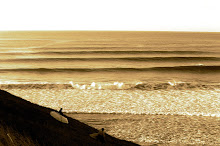managing the unknown

I’ve spent the last two days as a temp taking minutes for a meeting of cultural resource managers. Some of the discussions revolved around protecting cultural and historic resources in the face of development, sustaining collections of historic and archeological artifacts, successfully attracting educated and specialized staff, etc.
A large part of the meeting focused on creating what they called the “memorable visitor experience.” In other words, they wanted to ensure the people visiting sites walked away with a concrete experience that left them somehow changed. I must admit that I was impressed by many of the ideas and the level of sophistication in the way the group/organization tackled issues. The group consisted of about 15 people and although there were some tense moments they always kept an admirable level of respect for each other. Of course, they weren’t just ordinary folks, well I mean they were normal people, but what I mean is that these folks are at the top of their respective fields doing probably some of the most thoughtful cultural, archeological and historic resource conservation today.
What struck me was that they did not seem to take popular culture into account. I mean take blogging for example. Most blogs contain short snippets of information, often combined with hyper links to relevant material, and hardly ever go into thorough examinations of any given subjects. The only exception I can think of was the first blog I ever read, the now defunct Matt Chester blog, who now strictly writes on a typewriter in the form of a zine. Matt would go into long diatribes about physics, or eating bananas, or riding his fixed gear, all in a maniacally organized and clear prose that mesmerized each time.
Anyway, back to the cultural resource managers and pop culture… libraries are facing similar issues, as are museums and other traditional civic institutions. Our collective consciousness has no more room for tradition, or culture, or history. Our brains are becoming more and more attuned to absorbing small snippets of information for the needed job, only to let it go to make room for new information. One who does not understand the idea of cataloguing and search engines is bound to drown in our age of too much information.
So my question is what happens now? Do we simply loose our history because we no longer posses the attention span for it? Or do we do like Matt Chester, and give up our technology and revert to a simpler life in order to enjoy the process?
Can we create an artificial memorable experience? Does anyone, whose career in not at risk care?
Good night.














.jpg)




1 comment:
Interestin' site you have here.
Post a Comment